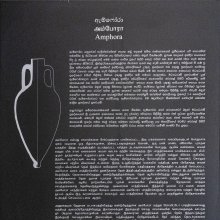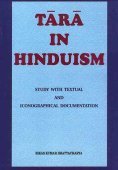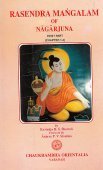Roman, Roma: 32 definitions
Introduction:
Roman means something in Buddhism, Pali, Hinduism, Sanskrit, Marathi, Hindi, biology. If you want to know the exact meaning, history, etymology or English translation of this term then check out the descriptions on this page. Add your comment or reference to a book if you want to contribute to this summary article.
Roman has 29 English definitions available.
Images (photo gallery)
Languages of India and abroad
Sanskrit dictionary
[Deutsch Wörterbuch]
Source: Cologne Digital Sanskrit Dictionaries: Böhtlingk and Roth Grosses Petersburger WörterbuchRoma (रोम):—1. = roman am Ende eines adj. comp.: ajātaroma [Mahābhārata 3, 10053.] aroma [1, 8010] (f. a). [Varāhamihira’s Bṛhajjātaka S. 70, 3.] saroma [21.] — Vgl. dīrgha .
--- OR ---
Roma (रोम):—2.
1) m. Loch, Höhle [ŚABDĀRTHAK.] bei [WILSON]; vgl. 1. ropa . —
2) n. Wasser [Śabdacandrikā im Śabdakalpadruma]
--- OR ---
Roma (रोम):—3. Rom [Oxforder Handschriften 338,b,1 v. u.] — Vgl. bṛhadroma und 2. romaka .
Source: Cologne Digital Sanskrit Dictionaries: Böhtlingk and Roth Grosses Petersburger WörterbuchRoman (रोमन्):—1. n [Uṇādisūtra 4, 150.] = loman [Kāśikīvṛtti] zu [Pāṇini’s acht Bücher 8, 2, 18.] Haar am Körper der Menschen und Thiere (in der Regel mit Ausschluss der langen Kopfund Barthaare, der Mähne und des Schweifes) [Amarakoṣa 2, 6, 2, 50, 3, 12.] [Hemacandra’s Abhidhānacintāmaṇi 619. 630.] [Halāyudha 2, 369. 394.] romāṇya.ayā [Ṛgveda 1, 135, 6. 9, 62, 8. 75, 4. 97, 11.] [Śāṅkhāyana’s Śrautasūtrāṇi 4, 14, 4. 18, 24, 19.] [GṚHY. 1, 24.] [Aitareyabrāhmaṇa 2, 9.] [Chāndogyopaniṣad 8, 13, 1.] romāṇi rahasyāni [Manu’s Gesetzbuch 4, 144. 221.] paśuromāṇi [5, 38.] (ṛṣeḥ) nāgnirdadāha romāpi [8, 116.] tato romāṇi me hṛṣan [Mahābhārata 2, 1925.] mayūrasamaromabhiḥ . hayaiḥ [3, 12065.] dīrgharomadhara [Rāmāyaṇa Gorresio 2, 28, 24. 3, 49, 3. 4. 74, 15.] [Suśruta 1, 5, 1. 17, 9. 2, 13, 10. fgg.] [Raghuvaṃśa 1, 83.] [Spr. 1035.] [Varāhamihira’s Bṛhajjātaka S. 57, 7. 61, 11. 67, 6. 68, 4. 69, 13. 70, 2.] [Bhāgavatapurāṇa 2, 6, 4. 3, 13, 34. 22, 29. 5, 26, 14. 8, 7, 28.] keśavālaromāṇi (vājinaḥ) Cit. beim. Schol. zu [Śākuntala 6, 5.] romotpāṭana [Weber’s Verzeichniss No. 958.] hṛṣṭaroman adj. [Trikāṇḍaśeṣa 3, 1, 21.] [Rāmāyaṇa] [Gorresio 1, 22, 1. 52, 1.] [Bhāgavatapurāṇa 4, 24, 22] (von Pflanzen). [Vetālapañcaviṃśati] in [Lassen’s Anthologie (III) 3, 22.] hṛṣṭaromṇī [Varāhamihira’s Bṛhajjātaka S. 92, 3.] prahṛṣṭaroman adj. [Rāmāyaṇa 3, 65, 19.] [Bhāgavatapurāṇa 3, 13, 5.] saṃhṛṣṭaromāṅga [Rāmāyaṇa 3, 55, 5.] suvarṇaromayūtha [Pañcatantra 35, 1.] Gefieder der Vögel [Rāmāyaṇa 4, 59, 19.] romā pṛthi.yāḥ [Ṛgveda 1, 65, 8.] — Vgl. ūrdhva, dīrgha, netra, pṛthu (breithaarig d. i. schuppig von Fischen), bahu, mayūra, mahā, svarṇa, hrasva .
--- OR ---
Roman (रोमन्):—2. m. pl. Nomen proprium eines Volkes [Mahābhārata 6, 363] [?(Viṣṇupurāṇa 192).] ed. Bomb. liest: vanāyavo daśāpārśvaromāṇaḥ — Vgl. 2. romaka
1) a).
Source: Cologne Digital Sanskrit Dictionaries: Sanskrit-Wörterbuch in kürzerer FassungRoma (रोम):—1. am Ende eines adj. Comp. (f. ā) = roman Haar [Hemādri’s Caturvargacintāmaṇi 1,423,17.]
--- OR ---
Roma (रोम):—2. —
1) m. Loch , Höhle. —
2) n. Wasser.
--- OR ---
Roma (रोम):—3. m. —
1) Rom. —
2) Pl. Nomen proprium eines Volkes [Wilson's Uebersetzung des Viṣṇupurāṇa 2,133.]
Source: Cologne Digital Sanskrit Dictionaries: Sanskrit-Wörterbuch in kürzerer FassungRoman (रोमन्):—1. n. Haar am Körper der Menschen und Thiere (in der Regel mit Ausschluss der langer Kopf und Barthaare , der Mähne und des Schweifes) , Gefieder der Vögel , Fischschuppe. Am Ende eines adj. Comp. f. romṇī.
--- OR ---
Roman (रोमन्):—2. m. Pl. Nomen proprium eines Volkes.
Sanskrit, also spelled संस्कृतम् (saṃskṛtam), is an ancient language of India commonly seen as the grandmother of the Indo-European language family (even English!). Closely allied with Prakrit and Pali, Sanskrit is more exhaustive in both grammar and terms and has the most extensive collection of literature in the world, greatly surpassing its sister-languages Greek and Latin.
See also (Relevant definitions)
Starts with (+72): Romabhumi, Romadvara, Romagarta, Romaguccha, Romaguchchha, Romaharsha, Romaharshana, Romahrit, Romakarnaka, Romakeshara, Romakupa, Romalata, Romali, Romamcagollu, Romamcaia, Romamcakaraka, Romamcakari, Romamcana, Romamcanagollu, Romamcanavesagu.
Ends with (+30): Bahiroman, Bahuroman, Bhayasamhrishtaroman, Diptaroman, Dirgharoman, Goroman, Hamsaroman, Hariroman, Hinaroman, Hiranyaroman, Hrasvaroman, Hrishtaroman, Kancanaroman, Kapotaroman, Karuroman, Khadgaroman, Khararoman, Kritiroman, Maharoman, Marjararoman.
Full-text (+466): Romaharsha, Romavikara, Romakarnaka, Romakupa, Romanca, Romaka, Romodbheda, Romaguccha, Suciroman, Stabdharoman, Romali, Romasamvejana, Raumayana, Romabaddha, Romabhumi, Romavibheda, Romakeshara, Romagutsa, Romalata, Romodgati.
Relevant text
Search found 123 books and stories containing Roman, Roma, Rōma, Romā; (plurals include: Romans, Romas, Rōmas, Romās). You can also click to the full overview containing English textual excerpts. Below are direct links for the most relevant articles:
Shrimad Bhagavad-gita (by Narayana Gosvami)
Verse 11.14 < [Chapter 11 - Viśvarūpa-darśana-yoga (beholding the Lord’s Universal Form)]
Verse 1.29 < [Chapter 1 - Sainya-Darśana (Observing the Armies)]
Verse 18.74 < [Chapter 18 - Mokṣa-yoga (the Yoga of Liberation)]
Rig Veda (translation and commentary) (by H. H. Wilson)
List of Mahabharata people and places (by Laxman Burdak)
Bhakti-rasamrta-sindhu (by Śrīla Rūpa Gosvāmī)
Verse 2.2.20 < [Part 2 - Ecstatic Expressions (anubhāva)]
Verse 3.2.68 < [Part 2 - Affection and Service (dāsya-rasa)]
Verse 3.2.11 < [Part 2 - Affection and Service (dāsya-rasa)]
Satirical works of Kshemendra (study) (by Arpana Devi)
4. Origin of Satire < [Chapter 1 - Introduction]
8.4. Summary of A Tale of a Tub < [Chapter 1 - Introduction]
1. Meaning of Satire < [Chapter 1 - Introduction]
Garga Samhita (English) (by Danavir Goswami)
Verse 2.5.14 < [Chapter 5 - The Liberation of Bakāsura]
Verse 1.5.38 < [Chapter 5 - The Lord’s Appearance]
Verse 3.9.15 < [Chapter 9 - The Birth of Śrī Girirāja]
Related products
(+1 more products available)






